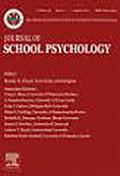
“The Black–White Achievement Gap” poses a persistent, if not an intractable problem for education policy researchers. In the research paper developed by Fantuzzo, LeBoeuf, Rouse, and Chen (2012), urban school students, Black as well as White, are assumed to share certain risks that slow or derail academic success, though, despite this sharing, White students typically outperform Black students. The findings of Fantuzzo et al. (2012) indicate that the Black–White achievement gap is matched by a comparable disparity in risk experiences and that these experiences and their accumulation explain a significant amount of variation between Blacks and Whites. The data the authors provide identify all the commonly known risk experiences, including such variables as family risk, but I suggest that there is a need for a more nuanced view of social risk—a greater appreciation of structural forces at work that contribute to the persistent distress of the local, inner-city community and negatively impact local students, and indirectly, their schools.